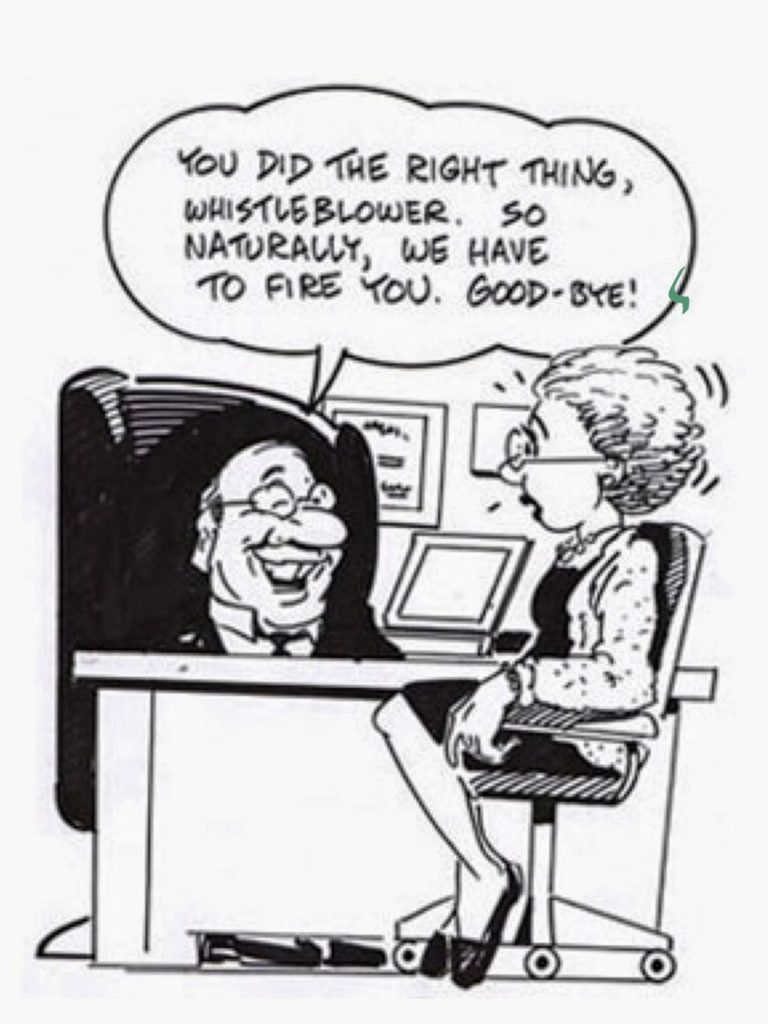Article-Detail

The Temptation of Retaliation Hurts Everyone
I often find myself quoting Newton’s Third Law of Motion when talking leadership with a struggling manager. Newton’s Third Law states that for every action there is an equal and opposite reaction. In the context of the conversation, if someone hits you it's natural to want to hit them back. As a boss, supervisor, or manager, you have the means to return fire in ways that can be painful to people in reaction to their words, actions, or behavior that bothers you. And the temptation can be strong. The problem at work is that the boss’s reaction, and overreactions, can fall in the category of retaliation which is illegal and can expose the boss and organization to serious liability. More than that, it compromises the leader, reducing you in the eyes of those who look to you for leadership. Do not give in to the temptation, the costs in the long run outweigh any satisfaction that might come from your counterpunch.
Equal Employment Opportunity Commission (EEOC) laws “prohibit punishing job applicants or employees for asserting their rights to be free from employment discrimination including harassment. Asserting these EEO rights is called "protected activity," and it can take many forms.” A few examples would include joining a union or participating in union activity, filing a complaint or being a witness in a complaint, reporting behaviors you believe to be discriminatory, sharing information in an investigation, declining sexual advances, or stepping in on behalf of other employees experiencing mistreatment. This list is by no means exhaustive, there are many more, this is a short list of common violations that result in expensive jury payouts.
Between 2013 and 2018, the state of Missouri paid more than $52 million to settle sexual harassment throughout its state agencies. Tina Gallego recieved an $800,000 settlement after suing the Missouri Department of Corrections for sexual harassment and retaliation. She was a witness in a case involving her colleague, Deborah Hesse who was a target of sexual harassment. Because of her participation in that case, Gallego became a target, and filed a claim. After returning from her meeting with an investigator she took a drink from a soda can that had been tampered with resulting in her vomiting and breaking out in a severe rash. Deborah Hesse was awarded $1.92 million. Felicia Mitchell was paid $319,000 by aDunklin County jury after complaining about sexual harassment by her supervisor and later she was poisoned in retaliation. As of 2017, the Missouri Department of Corrections faced over 30 harassment and retaliation cases.
Even in cases where employers prove that a discrimination, harassment or other employment claim lacks merit, the employers may still be found liable because the complainant suffered adverse employment consequences after complaining. Retaliation is not limited to substantiated claims of discrmination.
According to careertrend.com “CAL/OSHA concluded that one in four workers is the victim of on-the-job violence. When the victim of actual violence settles out of court, the average settlement is $500,000. Jury awards to victims average $3 Million. Awards for non-violent illegal actions may approach these amounts in some circumstances.
What usually happens is a supervisor will treat an employee they don’t like differently. Instead of talking it through, the boss will attempt to make the employee miserable by changing work conditions, being overcritical, giving tasks that are beneath classification or any of a number of indignities. The employee will roll with it hoping that things will change and when it doesn’t that employee will file a complaint. Because these actions aren’t overt, can be explained away, or the organization has a bias toward the boss, the complaint doesn’t go very far. Now, having absorbed the first shot, the boss ramps up the pressure applied by reducing hours, scathing evaluations, and even termination. As we have learned from the mistakes of others, even if the complaint is unfounded, filing it is protected activity and retaliation can expose you to liability.
The law protects everyone from retaliation, in every case. Having a description or narrative you are happy with does not justify it and the law will not accept your explanation or give you an exception. Further, making excuses or justifications will only make things worse as the validation usually emboldens. Also, tit for tat behavior makes the boss look petty. Leaders have to have tough, thick skin. This armour will keep you from personalizing the exposure of wrongdoing or retaliation. The best defense is to create an environment where people are not mistreated. Whenever complaints are brought to light, imagine how you would like to be treated if you were on that side of the issue. Train the leaders in your organization and live the example you would like your leaders to follow. Take all complaints as an opportunity to improve and you will SOAR!
William A. Brown
February 9, 2020
https://www.eeoc.gov/laws/types/retaliation.cfm
https://www.kingsleykingsley.com/2019/retaliation-claim-worth




